Ecosystems: Interactions, Energy, and Dynamics
-
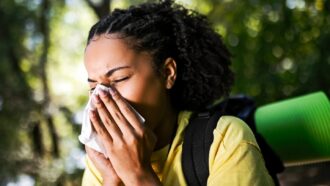 Health & Medicine
Health & MedicineA new type of immune cell may cause lifelong allergies
These special memory cells were present in people with allergies and absent in those without.
-
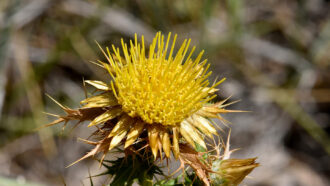 Plants
PlantsOn hot summer days, this thistle stays cool to the touch
Its yellow flowers can cool themselves substantially, staying up to 10 degrees C (18 degrees F) cooler in extreme heat.
-
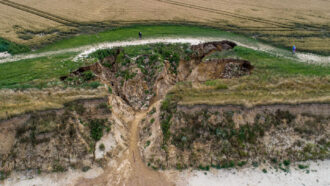 Earth
EarthExperiment: Can plants stop soil erosion?
Soil erosion washes pollutants into streams and rivers — but plants may help limit that.
-
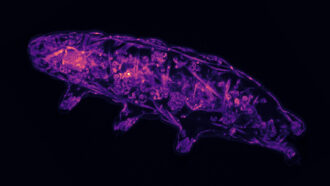 Animals
AnimalsTardigrades survive harsh conditions by almost dying. Here’s how
Under stress, a chemical change signals these water bears to switch between live and mostly dead.
-
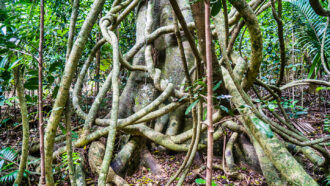 Plants
PlantsRampaging vines are slowly strangling tropical forests
Called lianas,these vines are growing out of control. They may cause tropical forests to absorb less carbon dioxide — worsening climate change.
By Douglas Fox -
 Plants
PlantsThis urban gardener is mimicking nature to create healthier plants
Urban garden specialist Kwesi Joseph is experimenting with rock dust and plants. He also helps New York City community and school gardens with gardening problems.
-
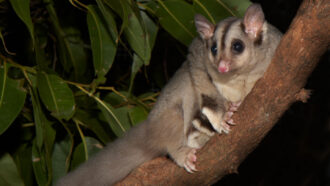 Animals
AnimalsAnalyze This: Marsupial gliders may avoid the ground to dodge predators
It has been unclear why gliding evolved in marsupials. To search for clues, researchers strapped activity trackers to some of these cryptic creatures.
-
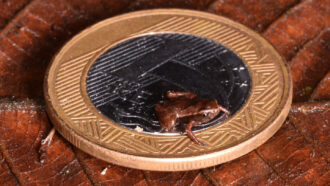 Animals
AnimalsThis frog is the world’s smallest known vertebrate
Neither fleas nor toads, Brazilian flea toads are almost flea-sized. These mini frogs are small enough to fit on a pinkie fingernail.
-
 Health & Medicine
Health & Medicine9 things to know about lead’s health risks — and how to curb them
Lead has been linked to lower IQ, behavior problems, mental-health disorders, strokes and more health impacts. There are ways to reduce your exposure.
-
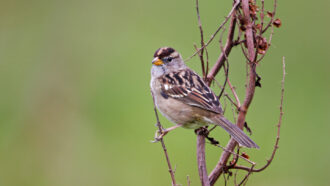 Animals
AnimalsExperiment: Are we there yet? Test how migratory birds navigate
In this experiment, use real data to figure out how migratory birds navigate from their breeding grounds to their wintering grounds.
-
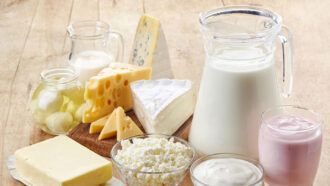 Microbes
MicrobesLet’s learn about useful bacteria
Bacteria do many useful jobs almost everywhere on Earth, from the soil to the seafloor to our stomachs.
-
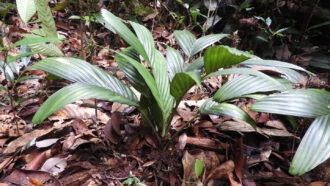 Plants
PlantsTo spy this palm’s blooms and fruits, start digging underground
Plants across 33 families are known for subterranean flowering or fruiting. But this palm is extremely rare. It does both.